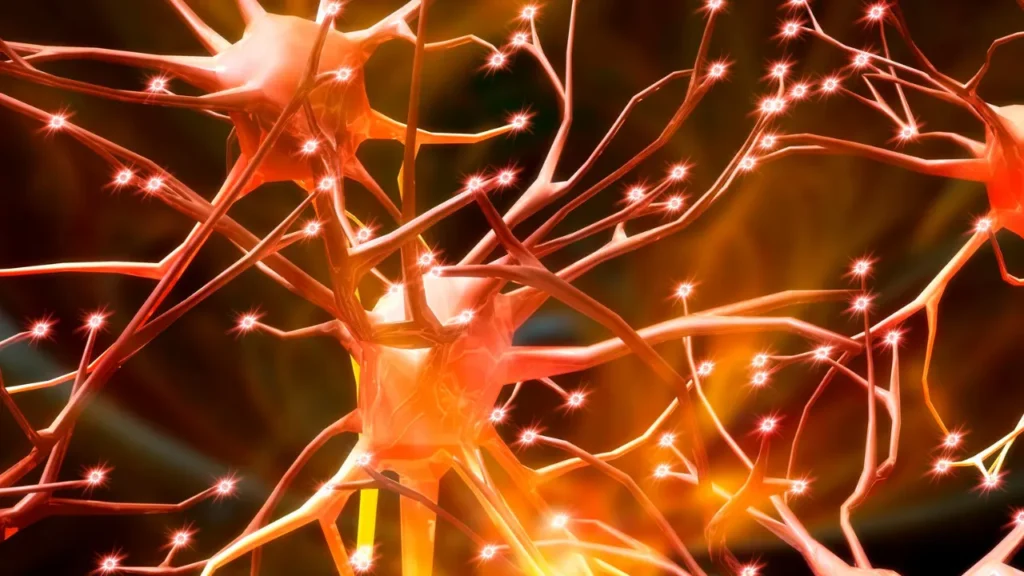Natural supplements have attracted much interest in the search for improved cognitive function. The unknown nootropic Tronadora has gained attention lately due to claims that it can improve focus, alertness, and general cognitive function. This thorough review covers the scientific features of Tronadora, such as its nature, health advantages, ideal dosage, side effects, possible drug interactions, and recommendations for its safe usage.
You May Also Like:
Five Great Reasons to Try a Nootropic Mushroom Supplement
What Are the Best Mushrooms for Brain Health? Here Are the Facts.
Tronadora: Benefits, Dosage, Side Effects, Drug Interactions, and Other Important Information is an original (NootropicsPlanet) article.
Nature of Tronadora
Tronadora, formally called Tecoma stans in science, is a tiny tree or perennial shrub belonging to the Bignoniaceae family. This plant is indigenous to the Americas, and its range extends from Mexico to Argentina and the southern United States to South America. Tronadora is distinguished by its lanceolate leaves and trumpet-shaped, vivid yellow blooms. The plant is resilient and widely used in traditional medicine across many cultures because it grows well in various environmental conditions. However, it is most commonly found in semi-arid areas.
Indigenous peoples have always used Tronadora in folk medicine because of its medicinal qualities. It has been applied to various conditions, including infections, diabetes, and digestive issues. The broad medicinal application of Tronadora in traditional settings provides a foundation for its interest in modern herbal and nootropic supplementation.
Health Benefits of Tronadora
The interest in Tronadora as a nootropic stems from its potential to improve various aspects of cognitive function:
- Alertness and Focus: Alkaloids in Tronadora may stimulate the central nervous system, leading to increased alertness and focus, which can be particularly beneficial for tasks requiring sustained attention.
- Memory Enhancement: Flavonoids, with their antioxidant properties, may protect the brain from oxidative stress, potentially improving memory retention and recall.
- Mood Regulation: Some studies suggest that Tronadora can have anxiolytic effects, helping to reduce anxiety and improve mood, indirectly supporting cognitive performance.
- Neuroprotection: The antioxidant properties of Tronadora may offer protection against neurodegenerative diseases by neutralizing free radicals and reducing inflammation in the brain.

Chemistry of Tronadora
The interest in Tronadora as a nootropic and medicinal plant is largely due to its rich chemical composition, which includes a variety of bioactive compounds. These compounds are believed to confer the plant’s health benefits and are the focus of ongoing research to understand their mechanisms of action, particularly regarding cognitive enhancement.
The primary bioactive constituents of Tronadora include:
- Alkaloids: These nitrogen-containing compounds are known for their pharmacological effects on the human body, particularly on the nervous system. Alkaloids in Tronadora may stimulate cognitive functions and have been studied for their potential to improve alertness and focus.
- Flavonoids: This group of polyphenolic compounds is celebrated for its antioxidant properties, which play a crucial role in protecting the brain from oxidative stress. Oxidative stress is a factor in cognitive decline, and thus, flavonoids may contribute to memory enhancement and neuroprotection.
- Saponins: These compounds are known for their anti-inflammatory and immune-boosting properties. While their direct impact on cognitive function is unclear, reducing inflammation can support overall brain health and cognitive performance.
- Tannins: Tannins have antioxidant and anti-inflammatory properties, which can contribute to Tronadora’s neuroprotective effects. Tannins may indirectly benefit cognitive processes by protecting brain cells from damage and supporting healthy brain function.
Physiological Mechanism of Action
The physiological mechanisms through which Tronadora exerts its cognitive-enhancing effects involve a complex interplay of its bioactive compounds with the body’s neurological system. These interactions are multifaceted, affecting various aspects of brain function and health. Understanding these mechanisms is crucial for appreciating how Tronadora might improve cognition, alertness, and focus, along with its potential neuroprotective benefits.
Enhancement of Neurotransmitter Activity
- Alkaloids found in Tronadora may influence the activity of neurotransmitters, such as acetylcholine, dopamine, and serotonin, which play pivotal roles in cognitive processes. For instance, acetylcholine is closely linked with memory and learning. By modulating the release or action of these neurotransmitters, Tronadora can potentially enhance cognitive functions such as concentration, memory, and mood regulation.
Antioxidant Activity and Reduction of Oxidative Stress
- Flavonoids and tannins in Tronadora exhibit potent antioxidant properties, scavenging free radicals and reducing oxidative stress within the brain. Oxidative stress is a key factor in the aging of neural tissues and the development of neurodegenerative diseases. By protecting neuronal cells from oxidative damage, these compounds may improve cognitive function and longevity, as well as offer a protective effect against the progression of neurodegenerative conditions.
Anti-inflammatory Effects
- Saponins and tannins also contribute to Tronadora’s anti-inflammatory effects. Chronic inflammation is implicated in a range of neurological disorders and can adversely affect cognitive health. Tronadora may support cognitive functions and protect against cognitive decline by mitigating inflammatory responses in the brain.
Neuroprotection and Enhancement of Neuroplasticity
- The bioactive compounds in Tronadora may provide neuroprotective benefits by shielding neurons from various forms of damage, including toxic insults and apoptosis (programmed cell death). Additionally, these compounds might support neuroplasticity, the brain’s ability to form and reorganize synaptic connections in response to learning and experience. Enhanced neuroplasticity is associated with improved learning, memory, and cognitive flexibility.
Vasodilation and Improved Cerebral Blood Flow
- Some components in Tronadora might have vasodilatory effects, leading to improved blood flow to the brain. Enhanced cerebral blood flow ensures a steady supply of oxygen and nutrients while facilitating the removal of metabolic wastes. This can lead to improved brain function, heightened alertness, and increased energy levels, further supporting cognitive performance.

Optimal Dosage of Tronadora
The ideal dosage of Tronadora is challenging to determine because it varies depending on several parameters, including the patient’s age, weight, and overall health. For the purpose of improving cognitive function, the recommended daily intake of the dried plant material is typically 200–400 mg. Nevertheless, these suggestions are tentative and should be used cautiously due to the dearth of thorough clinical research. It is essential to consult a healthcare professional before beginning any new supplement program.
Side Effects of Tronadora
Even though Tronadora is generally regarded as safe when used in moderation, some people may have adverse effects like headaches, dizziness, or gastrointestinal discomfort. Usually, these effects are minor and fleeting. However, following appropriate dosages and watching for adverse responses is essential because there is a chance of more severe side effects, especially with high doses or long-term use.

Potential Substance Interactions with Tronadora
Certain drugs or supplements, particularly ones with comparable effects on the central nervous system or blood sugar levels, may interact with Tronadora. For instance, Tronadora’s effects may be amplified when used with other stimulants or nootropics, raising the possibility of adverse side effects like jitters or insomnia. Furthermore, Tronadora may conflict with diabetes drugs due to its potential effects on blood sugar levels, requiring careful monitoring and possibly dose modifications. Always get medical advice before taking Tronadora with other medications.
Best Responsible Uses of Tronadora
It is essential to follow these responsible use guidelines to maximize the benefits of Tronadora while minimizing risks:
- Consultation: Before starting Tronadora, consult a healthcare provider, especially if you have underlying health conditions or are taking other medications.
- Start with Low Doses: Begin with a lower dose to assess tolerance, gradually increasing as needed and recommended.
- Monitor for Side Effects: Be vigilant for adverse reactions, reducing the dose or discontinuing use if necessary.
- Short-term Use: Until more long-term safety data are available, consider using Tronadora for short periods when cognitive enhancement is most needed.
- Quality Sources: Ensure the Tronadora supplement is sourced from reputable manufacturers to avoid contaminants and ensure potency.
Tronadora:
Conclusion
Recent scientific studies have begun unraveling Tronadora’s therapeutic potential, revealing its antioxidant, anti-inflammatory, antimicrobial, and hepatoprotective properties. Furthermore, Tronadora has shown promise in supporting digestive health, regulating blood sugar levels, and enhancing immune function. Modern research is validating its traditional use in managing conditions like diabetes, gastrointestinal disorders, and skin ailments, paving the way for its integration into mainstream healthcare practices.
However, while the preliminary evidence is encouraging, further scientific exploration is warranted to fully understand the mechanisms of action, optimal dosages, and potential side effects associated with Tronadora supplementation. As interest in natural and plant-based therapies continues to grow, Tronadora represents a fascinating area of exploration for researchers and healthcare practitioners alike, potentially enriching our understanding of natural medicine and contributing to holistic approaches to health and wellness.

References:
- Tronadora – Uses, Side Effects, and More. Retrieved from: https://www.webmd.com/vitamins/ai/ingredientmono-1122/tronadora
- Contributions from Mexican Flora for the Treatment of Diabetes Mellitus: Molecules of Psacalium decompositum (A. Gray) H. Rob & Brettell. Retrieved from: https://www.ncbi.nlm.nih.gov/pmc/articles/PMC8153299/
- Tecoma stans: Alkaloid Profile and Antimicrobial Activity. Retrieved from: https://www.ncbi.nlm.nih.gov/pmc/articles/PMC6791079/
Important Note: The information contained in this article is for general informational purposes only, and should not be construed as health or medical advice, nor is it intended to diagnose, prevent, treat, or cure any disease or health condition. Before embarking on any diet, fitness regimen, or program of nutritional supplementation, it is advisable to consult your healthcare professional in order to determine its safety and probable efficacy in terms of your individual state of health.
Regarding Nutritional Supplements Or Other Non-Prescription Health Products: If any nutritional supplements or other non-prescription health products are mentioned in the foregoing article, any claims or statements made about them have not been evaluated by the U.S. Food and Drug Administration, and such nutritional supplements or other health products are not intended to diagnose, treat, cure, or prevent any disease.


